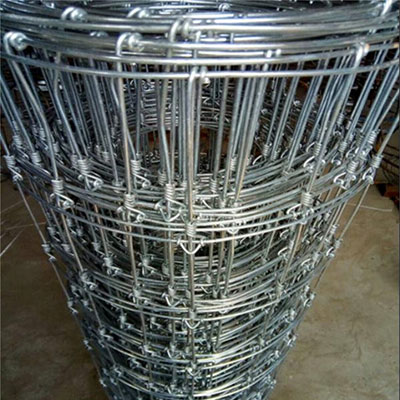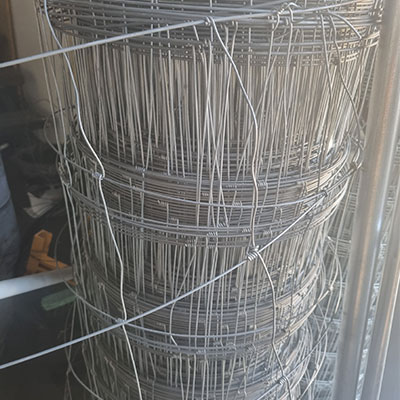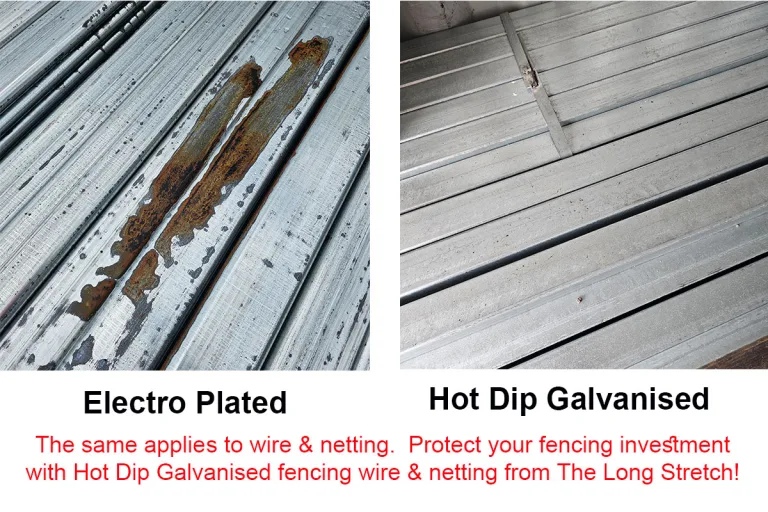The Ultimate Guide
Fixed knot netting is becoming the top choice for farmers, ranchers, and property owners looking for a durable, low-maintenance fencing solution.
Whether you need to contain livestock, protect crops, or secure property, it offers superior strength, longevity, and ease of installation compared to traditional fencing options.
Click To View ProductWhat is Fixed Knot Fencing?
Fixed knot fence netting is a type of woven wire fencing that uses a high-tensile wire and a unique fixed knot design to provide increased stability and durability. Unlike traditional hinge-joint fences, which can loosen over time and ensures a firm and consistent structure that holds up against pressure from animals, weather, and external forces.
Benefits:
1. Superior Strength and Durability
The knot design keeps vertical stay wires securely in place, reducing fence sagging and preventing gaps. This makes it ideal for high-impact areas where livestock or wildlife could put pressure on the fence.
2. Long-Lasting Performance
With high-tensile galvanized steel construction, it is resistant to rust and corrosion. Many manufacturers offer coatings such as Class 3 galvanized coatings that extend the lifespan of the fence to 20–40 years.
3. Minimal Maintenance
Unlike barbed wire or traditional woven fences that require regular tightening and repair, this netting maintains its structure with little maintenance. Its high tensile strength means fewer posts are needed, reducing installation time and costs.
4. Effective Animal Containment
Whether you’re containing cattle, horses, sheep, or goats, fixed knot fencing provides a secure barrier that prevents animals from pushing through or breaking the wire. The design can also include graduated mesh spacing, preventing smaller animals from escaping or predators from entering.
5. Versatile Applications
Fixed knot fence netting is widely used for:
- Livestock fencing (cattle, sheep, horses, goats)
- Deer exclusion fencing
- Farm and orchard protection
- Game fencing for wildlife management
- Security fencing for properties and businesses
Installation Tips
1. Plan Your Layout
Before installing, map out your fence line and determine post spacing. These type of fences typically allow for wider post spacing compared to other fencing types.
2. Use Quality Posts
Choose sturdy steel posts to support the high tensile strength of the fence. Corner posts should be properly braced to withstand tensioning.
3. Proper Tensioning is Key
Tensioning is crucial for maintaining a strong fence. Use a fence stretcher or tensioning tool to ensure the wire remains tight and secure.
4. Consider Predator Protection
If using the fence to keep predators out, consider adding an apron or burying a portion of the mesh to prevent digging.
Choosing the Right Fixed Knot Fence Netting
When selecting a fixed knot fence, consider the following factors:
- Wire Gauge: A thicker gauge provides more strength and durability.
- Coating Type: Hot Dip Galvanised coatings offer superior corrosion resistance compared to zinc/aluminium electroplating normally found on fencing wire.
- Mesh Spacing: Smaller spacing at the bottom is ideal for keeping out smaller animals, while larger spacing at the top allows visibility and airflow.
Final Thoughts
Fixed knot fence netting is an investment in quality, security, and long-term durability. Whether you’re protecting livestock, crops, or property, this fencing solution provides peace of mind with minimal maintenance. With the right installation techniques and quality materials, your fence can last for decades, offering reliable performance in any environment.



